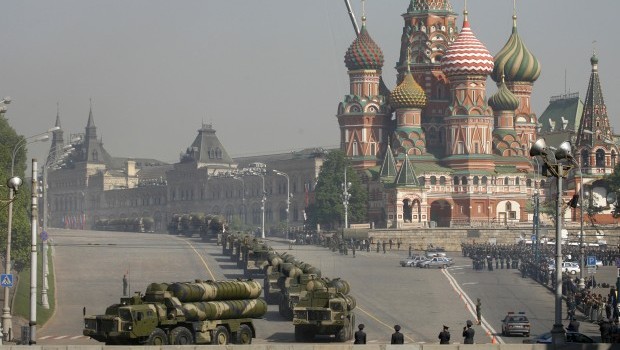Recent developments in the Middle East indicate that the region has not been on Russia’s foreign agenda since Vladimir Putin came to power. But I think that Putin now wants to fill this gap in an attempt to show Russia’s ability to use its influence in conflict zones, having withdrawn from the Middle East peace processes, particularly the Arab–Israeli conflict. For years, Russia has not had any role in the Palestinian–Israeli negotiations.
It is well known that Russia has recently focused its role in the Syrian crisis after it had been active in other issues, such as the security of the Gulf and Iraq. Therefore, the Russians are now looking for a sphere of influence, in line with their own strategy. I think the Russians today want to present themselves to the world with new visions and conceptions. Analysis of the Russian discourse indicates that Moscow has not taken any initiative. Rather, it follows a reactive policy, using a famous diplomatic slogan: “Watch and wait.” This will be Russia’s strategy until the picture becomes clearer whether regarding the Syrian crisis, the security of the Gulf, the key wars in the Middle East, or the transformations that the Arab countries have witnessed.
Russia has never had any genuine role in the Middle East apart from its desire to make its presence felt.
Some are questioning whether it has become possible for the Russians to take advantage of US weakness: it is indeed possible for Russia to play a role in the region balancing the power of the US. However, this is only true to a certain extent—not as much as some may expect.
It is possible for the Arabs to take advantage of Russia’s desire to be present in the Middle East by adopting a unified strategy and reevaluating Russia’s orientations within the region. I think the beginning will be in Syria, and then in Egypt, in one way or another.
Russia may cast its shadows on the region through several mechanisms—not just in the military sphere. The talk of a Russian military deal indicates the possibility that the Russians may offer more than military support to the Arab world, particularly regarding the raging crises in Syria and Egypt. I think there are several mechanisms for Russia to support Arabs in this regard. Russia’s contribution to the Arab world could also include economic and material aspects.
Russia’s return to the Middle East is tied to its abilities and potential. It does have the potential to return to the Middle East. However, there are circumstances impeding its return. Among these obstacles are real problems within Russia itself, whether from the military or from other institutions that do not want their country to return to the region. In addition to this, there are the pre-existing restrictions on Moscow’s room to maneuver in the international sphere.
Thus we can see that the problem does not only lie with us in the Middle East: it is also related to particular circumstances within Russia. Some inside the country oppose the return of Russia to a universal or international role, and say that bipolarity or tripolarity are in nobody’s interest.
Russia has the ability and the potential to return to the Middle East, but only if it wants to. Until now, it has not formulated a clear position as to whether it has a complete strategic vision to deal with the Arab crises.
Russia has not presented itself as an alternative to the Americans, and has not confronted the US in international forums like the United Nations. The Russians wait for the American position first before they make a judgment. Therefore, it is unlikely that Russia will take the initiative and surprise the US with its foreign policy.
Convincing Russia to act will take time. It is not free to act and does not want to enter into a confrontation with the United States.
Russian policy follows the logic of cost and benefit. It is possible that this policy will change in the post-Obama period. However, it is essential to remember that real obstacles exist within Russia. These include the military and opposition parties that have expressed reservations about Russia’s return to a role in international politics and diplomacy. This might change in the future, but that change does not have to wait until the next American president is inaugurated. The United States governs the international system according to calculations of its own interests, into which Russia is not factored.
The counterpart to this article can be read here.
